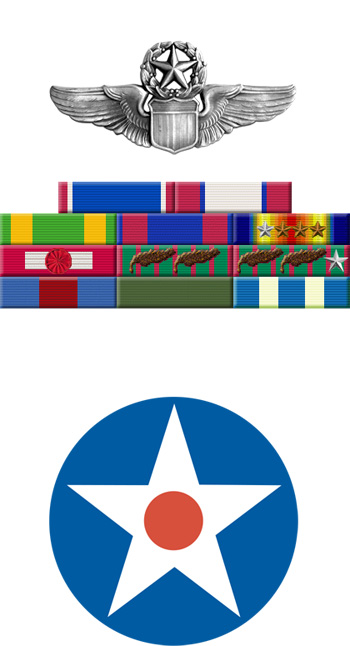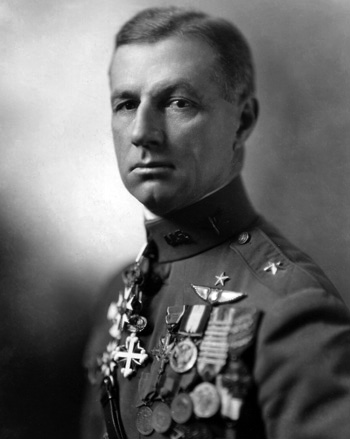
|
William "Billy" Mitchell |
 |
|||
| Rank, Service | ||||
Major General, U.S. Army Air Service |
||||
| Veteran of: | ||||
|
||||
| Tribute: | ||||
Billy Mitchell was born on December 29, 1879, in Nice, France. He enlisted in the U.S. Army in 1898 for service during the Spanish-American War, and was commissioned a 2d Lt in the Signal Corps the same year. Mitchell served in Cuba, the Philippines, Alaska, and as an instructor at the Army Signal School at Fort Leavenworth, Kansas, before being assigned to the Aeronautical Division of the U.S. Army Signal Corps on the Army General Staff in 1912. He completed flight training in 1916, and deployed to France in April 1917, when the United States declared war on Germany. Gen Mitchell rose to command all American air combat units in France during World War I, and he personally planned and led the air phase of the Battle of Saint-Mihiel in September 1918. After returning to the U.S. in March 1919, he was appointed the deputy director of the Army Air Service, and remained in that position until March 1925. During this time, Gen Mitchell took command of the 1st Provisional Air Brigade for a series of tests to prove that bombers could be used to destroy Navy ships, culminating in the sinking of the captured German battleship Ostfriesland on July 21, 1921. In March 1925, he was assigned as air officer to an Army Corps in San Antonio, Texas. When the Navy dirigible Shenandoah crashed in September 1925, Mitchell issued statements condemning the War Department for mishandling the national defense, for which he was court-martialed in November 1925. He resigned his commission on February 1, 1926, and spent the remainder of his life crusading for Air Power in the United States. Billy Mitchell died on February 19, 1936, and was buried at the Forest Home Cemetery in Milwaukee, Wisconsin. After his death, President Roosevelt elevated him to the rank of Major General. In 1946, Mitchell was posthumously awarded the Congressional Gold Medal in recognition of his outstanding pioneer service and foresight in the field of American military aviation. The North American B-25 Mitchell bomber was named for Gen Mitchell, and to this day it is the only American military aircraft named after a specific person. Billy Mitchell wrote the books "Winged Defense" in 1925, and "Skyways" in 1930. |
||||
|
||||

